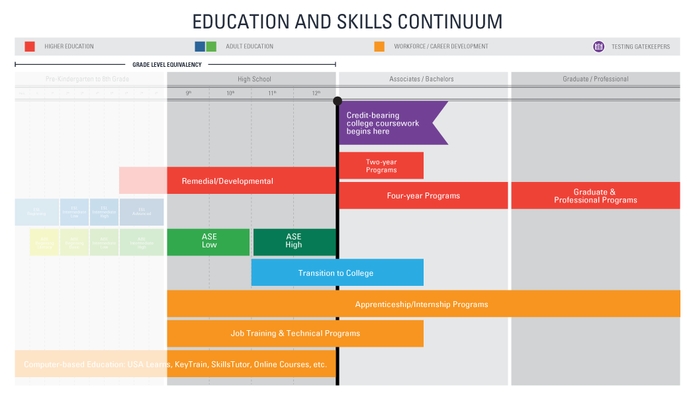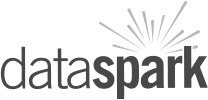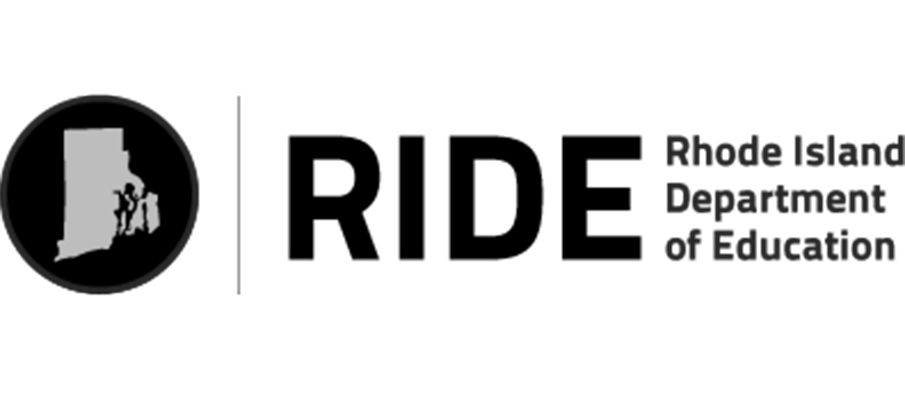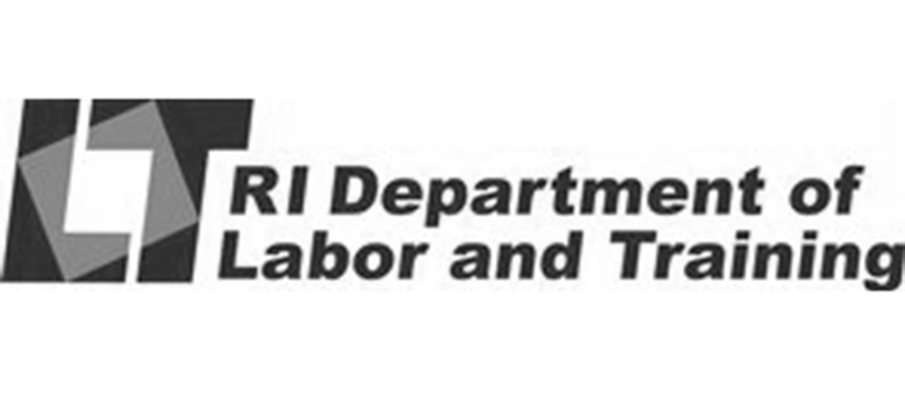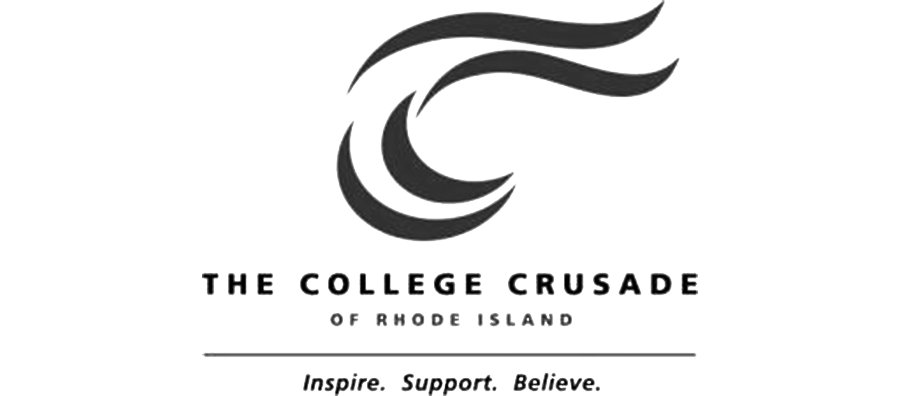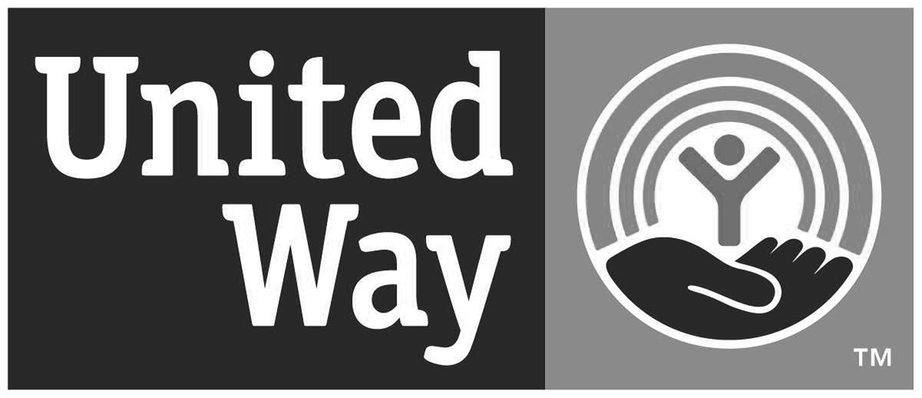Challenge 2 (Cont.): Improving the higher education pipeline
Click on the chart for a high-resolution view.

Unprepared adult learners who want a post-secondary degree can improve their K-12 skills either in higher education's non-credit-bearing "remedial" courses or in Adult Education classes.
Remedial Education: Earlier on slide 5 we saw that 74% of incoming CCRI students need at least one "remedial," or K-12-skills, course. These college-based courses cost the same in tuition as credit-bearing courses. While some financial aid is available, often adult learners get frustrated with paying for courses that seem to get them no closer to a degree. College-transition programs have been found to help low-skilled adults persist in higher education, when available.
Adult Education: Alternatively, learners use the tuition-free Adult Education system to ramp up their academic readiness, again, when services are available. Years of budget cuts have reduced the availability of Adult Education services. Currently, at least 1,300 adults are on waiting lists. And that number represents only a fraction of the RI population who need to gain high-school skills and credentials to become viable in college or the workforce.
There is potential merit in each approach. Some data indicate that when remedial students are already familiar with the college environment, they transition to the demands of college-level work more easily than by jumping in from "outside," including the Adult Education system. But when colleges and college students spend time and resources preparing for credit-bearing "real" college, the efforts prolong degree completion and incur extra costs.
